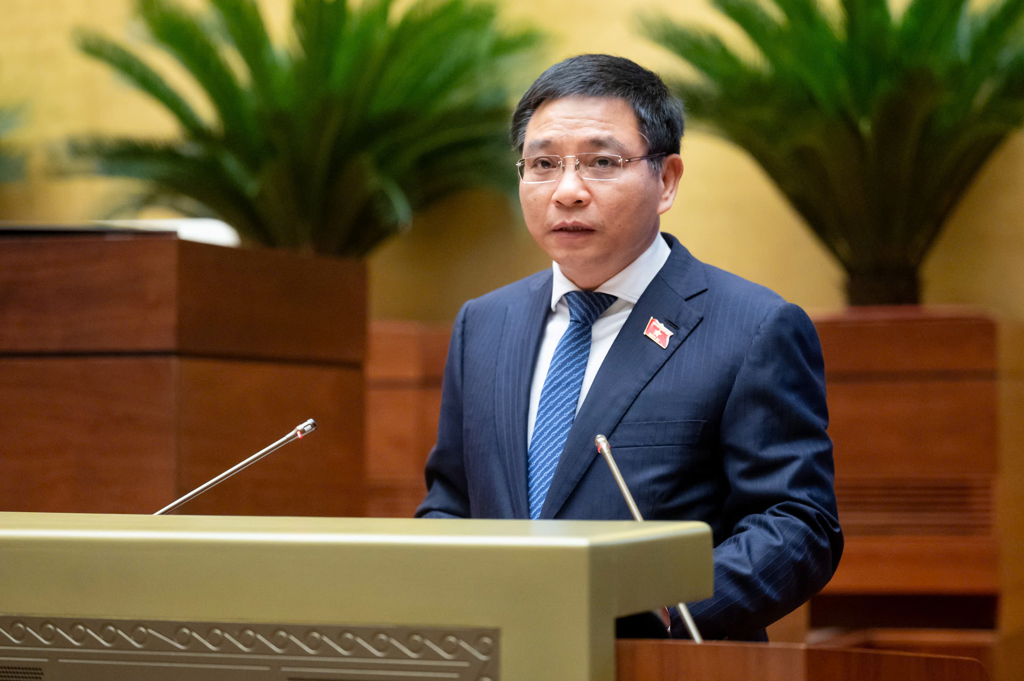INTERNATIONAL INVESTMENT
AND PORTAL
Under Official Dispatch No. 194/CD-TTg, issued on October 10, the directive calls for stronger state management of investment activities and measures to foster a more favourable business environment. The move aims to fully disburse assigned capital, sustain growth of over 8 per cent this year, and lay the groundwork for rapid progress in the 2026–2030 period, particularly in digital, green, and circular economy development.
The prime minister instructed ministers, heads of government agencies, and chairpersons of provincial and municipal People’s Committees to focus on several key tasks.
 Contractors work on the construction of Hoa River Bridge. Photo: MoC
Contractors work on the construction of Hoa River Bridge. Photo: MoC
First, they must effectively implement government resolutions and the prime minister’s directives on state management of investment, reform the public service system, and strengthen administrative discipline. Authorities are urged to shorten processing times for investment procedures, ensuring that individuals and enterprises remain at the centre of public service.
Second, ministries and localities should direct subordinate agencies to accelerate the handling of investment-related documents at all levels in a professional, transparent, and efficient manner.
Third, they are required to promote digitalisation, automation, and data connectivity, while enhancing management capacity and labour productivity to reduce costs and processing time.
Specifically, he asked the Ministry of Finance (MoF) to study, develop content, forms, information, and data for reporting investment results for the first nine months of 2025 according to the provisions of Articles 69, 70, and 72 of the Investment Law to ensure consistency, enough information, ease of implementation, and convenience of use.
The MoF needs to urgently issue documents to guide ministries, central and local agencies to report investment results in a unified manner according to the established form, and completed before October 12.
It must also synthesise the reporting results of ministries, agencies and localities and report to the prime minister before October 20.
The prime minister also requested ministries, agencies, People's Committees of provinces and centrally run cities to base on their assigned functions, tasks, authorities, and instructions of the MoF to promptly prepare a report on investment results for the first nine months of 2025 and report to the prime minister before October 15, 2025.
The PM assigned Deputy Prime Minister Ho Duc Phoc to monitor, direct, handle and resolve difficulties and problems of agencies, units and localities according to his authority, and report to him if beyond his authority.
The Government Office monitors and urges ministries, agencies and localities to urgently implement this official dispatch.
According to the MoF, more than VND440 trillion (US$17.6 billion) in public investment was disbursed in the first nine months of 2025 – equivalent to half of the target set by the prime minister for authorities at all levels.
During this period, nine ministries and central agencies, along with 17 localities, achieved disbursement rates at or above the national average. However, 29 ministries, central agencies, and 15 localities reported rates below the national average.
 More finished public plans in the works
More finished public plans in the works
Progress has been made in the disbursement of public investment in Vietnam, with the Ministry of Finance taking the lead in working with peers and localities to reach the desired goal.
 Minister of Finance proposes 'seed money' strategy to unlock disbursement
Minister of Finance proposes 'seed money' strategy to unlock disbursement
At the question-and-answer session on June 19, Minister of Finance Nguyen Van Thang outlined strategies to ensure full disbursement of public investment funds, including using state budget capital as 'seed money' to leverage additional funding sources.
 Legislative overhaul aims to boost public investment and efficiency
Legislative overhaul aims to boost public investment and efficiency
The National Assembly approved a comprehensive legislative act amending eight major laws on June 25 in a concerted effort to remove legal bottlenecks, enhance governance flexibility, and accelerate project implementation across critical sectors.
 Jump in infrastructure spending offers bright prospects for contractors
Jump in infrastructure spending offers bright prospects for contractors
The transport infrastructure boom is unlocking strong growth prospects for major construction contractors as massive public investment fuels long-term demand.
 Corporate bonds a critical lifeline for Vietnam’s infrastructure ambitions
Corporate bonds a critical lifeline for Vietnam’s infrastructure ambitions
With limited public funding, corporate bonds are emerging as a vital tool to attract long-term private capital and boost sustainable growth, especially as Vietnam needs $245 billion for infrastructure development by 2030.



















